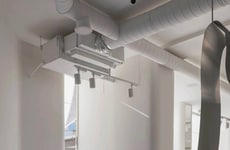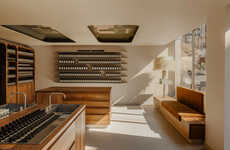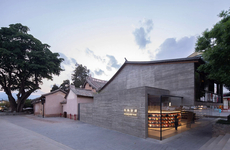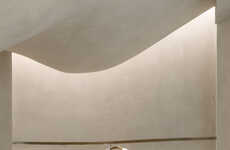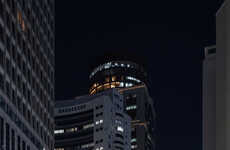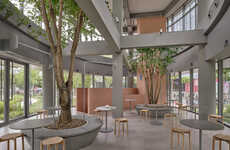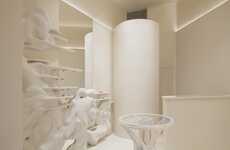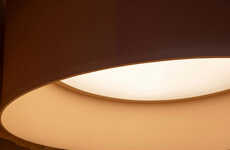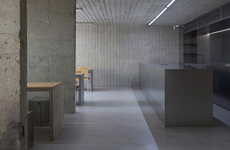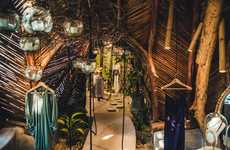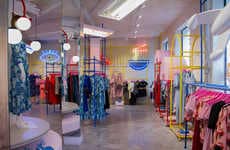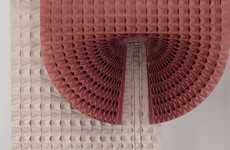
Alberto Caiola Creates an Elegant Ambience for Harbook
Kalin Ned — October 16, 2018 — Art & Design
References: albertocaiola & dezeen
Alberto Caiola designs an exceptionally sophisticated bookstore interior for Harbook — a shop based in Hangzhou, China. The aesthetic of the space embraces contemporary design through semi-reflective silver walls, arched doorways, sculptural furniture and hits of concrete. It is evident that through the arrangement and the vibe of the space, Alberto Caiola was aiming to appeal to a millennial crowd with city roots. In fact, the classical-meets-abstract arrangement of the space is described to draw inspiration from "imaginary cityscapes."
In tune with the idea of convergence, Harbook's bookstore interior is amplified by the incorporation of other aspects from the lifestyle industry, including "a cafe, and a showroom for Danish contemporary furniture brand Normann Copenhagen."
Photo Credits: Dirk Weiblen
In tune with the idea of convergence, Harbook's bookstore interior is amplified by the incorporation of other aspects from the lifestyle industry, including "a cafe, and a showroom for Danish contemporary furniture brand Normann Copenhagen."
Photo Credits: Dirk Weiblen
Trend Themes
1. Contemporary Design - The sleek and sophisticated bookstore interior embraces contemporary design, creating opportunities for disruptive innovation in the interior design industry.
2. Aesthetic Convergence - The incorporation of other aspects from the lifestyle industry, such as a cafe and a furniture showroom, demonstrates the trend of aesthetic convergence, providing opportunities for disruptive innovation in the retail and hospitality industries.
3. Millennial Appeal - The arrangement and vibe of the bookstore interior aim to attract a millennial crowd with city roots, offering opportunities for disruptive innovation in targeting and engaging with the millennial consumer market.
Industry Implications
1. Interior Design - The contemporary design of the bookstore interior presents opportunities for disruptive innovation in the interior design industry, such as exploring new materials and techniques.
2. Retail - The incorporation of a cafe and a furniture showroom within the bookstore presents opportunities for disruptive innovation in the retail industry, such as creating unique experiential spaces and integrating complementary products/services.
3. Hospitality - The incorporation of a cafe and a showroom for a furniture brand within the bookstore provides opportunities for disruptive innovation in the hospitality industry, such as offering curated experiences and fostering collaborations with lifestyle brands.
3.5
Score
Popularity
Activity
Freshness

